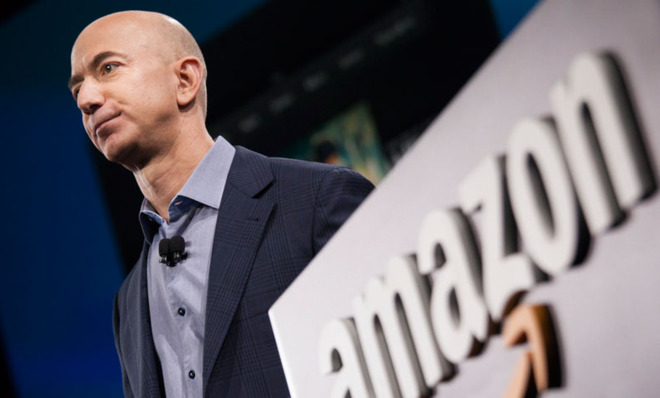Is Amazon a monopoly?
Four smart takes

A free daily email with the biggest news stories of the day – and the best features from TheWeek.com
You are now subscribed
Your newsletter sign-up was successful
Amazon must be stopped, said Franklin Foer at New Republic. It's easy to be "seduced by the deep discounts, the monthly automatic diaper delivery, [and] the ability to buy shoes or books or pinto beans or a toilet all from the same place." But the e-retail giant "has achieved a level of dominance that merits the application of a very old label: monopoly." To be sure, internet-age monopolies like Amazon are "a different species" from predecessors like U.S. Steel or Ma Bell, particularly since Amazon's intention isn't to saddle customers with higher prices. Instead, in its "pursuit of bigness," the company so brutally undercuts competitors, squeezes suppliers, and punishes those that dare to push back that its growth cannot be considered benign. Just witness its "record of shredding young businesses, like Zappos and Diapers.com, just as they begin to pose a competitive challenge," or its bullying tactics with publishers over control of the book market. This "big-footing necessitates a government response."
Don't be absurd, said Matthew Yglesias at Vox. "Amazon doesn't have any kind of monopoly." In the brick-and-mortar world, the company faces fierce competition from the likes of Walmart, Target, Home Depot, the Gap, and other major chains. In the digital sphere, it has to fend off bigger rivals like Apple and Google. It is true that in some of these retail markets Amazon has a rather dominant market share. "But having a lot of the market is not the same as having a monopoly." And if the company were really a monopoly, shouldn't it be minting profits? In the last quarter, Amazon lost $126 million, which is pretty typical. Last I checked, "'low and often non-existent profits' and 'monopoly' are not really concepts that go together."
Amazon "does have something like a monopoly over the books market, and that monopoly has become harmful," said Annie Lowrey at New York. Its bullying tactics — exemplified by its ongoing pricing war with the publisher Hachette — are "deplorable." But to call it "a monopoly writ large" is exaggerating. Amazon makes up only about 15 percent of all e-commerce sales in the U.S.; Walmart's e-commerce sales, for instance, are growing just as fast. Foer suggests Amazon is a ruthless and relentless business foe, but the tactics he describes are "not the nefarious actions of a monopolist but the normal actions of a big, well-funded firm in a spirited market." The fact is "businesses compete. Very often the bigger one wins."
The Week
Escape your echo chamber. Get the facts behind the news, plus analysis from multiple perspectives.

Sign up for The Week's Free Newsletters
From our morning news briefing to a weekly Good News Newsletter, get the best of The Week delivered directly to your inbox.
From our morning news briefing to a weekly Good News Newsletter, get the best of The Week delivered directly to your inbox.
Antitrust law doesn't really care about the fate of competitors anyway, said Joe Nocera at The New York Times. "Walmart has squashed many more small competitors than Amazon ever will, with nary a peep from the antitrust police." What the feds care about is "whether harm is being done to consumers." And if there's one thing that can be said for Amazon, it's that the firm "has redefined customer service in a way that has delighted people" and earned their loyalty. To say the firm "has to be stopped because it is giving people what they want is to misunderstand the nature of capitalism."
A free daily email with the biggest news stories of the day – and the best features from TheWeek.com
Sergio Hernandez is business editor of The Week's print edition. He has previously worked for The Daily, ProPublica, the Village Voice, and Gawker.